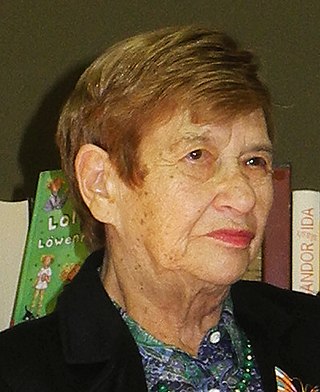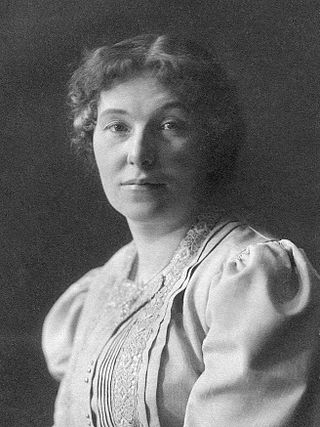Related Research Articles

Heidelberg is a city in the German state of Baden-Württemberg, situated on the river Neckar in south-west Germany. As of the 2016 census, its population was 159,914, of which roughly a quarter consisted of students.

Mannheim, officially the University City of Mannheim, is the second-largest city in the German state of Baden-Württemberg, after the state capital of Stuttgart, and Germany's 21st-largest city, with a 2021 population of 311,831 inhabitants. The city is the cultural and economic centre of the Rhine-Neckar Metropolitan Region, Germany's seventh-largest metropolitan region with nearly 2.4 million inhabitants and over 900,000 employees.
The poetry of South Africa covers a broad range of themes, forms and styles. This article discusses the context that contemporary poets have come from and identifies the major poets of South Africa, their works and influence.

The Rhine-Neckar Metropolitan Region, often referred to as Rhein-Neckar-Triangle, is a polycentric metropolitan region located in south western Germany, between the Frankfurt/Rhine-Main region to the North and the Stuttgart Region to the South-East.

Stefanie Zweig was a German Jewish writer and journalist. She is best known for her autobiographical novel, Nirgendwo in Afrika (1995), which was a bestseller in Germany. The novel is based on her early life in Kenya, where her family had fled to escape persecution in Nazi Germany. The film adaptation of the novel (2001) won the Academy Award for Best Foreign Language Film. Her books have sold more than seven million copies, and have been translated into fifteen languages.
Afro-Germans or Black Germans are Germans of Sub-Saharan African descent.

Eppelheim is a city in northern Baden-Württemberg bordering Heidelberg. It belongs to the district Rhein-Neckar-Kreis.

Hirschhorn (Neckar) is a small town in the Bergstraße district of Hesse, Germany, and is known as "The Pearl of the Neckar valley”. Hirschhorn is a climatic health resort situated in the Geo-Naturpark Bergstraße-Odenwald.

Mannheim Hauptbahnhof is a railway station in Mannheim in the German state of Baden-Württemberg. It is the second largest traffic hub in southwestern Germany behind Stuttgart Hauptbahnhof, with 658 trains a day, including 238 long-distance trains. It is also a key station in the Rhine-Neckar S-Bahn. 100,000 passengers embark, disembark or transfer between trains at the station each day. The station was modernised in 2001. It is classified by Deutsche Bahn as a category 2 station.

Neulußheim is a town in the district of Rhein-Neckar in Baden-Württemberg in Germany, with about 7,100 inhabitants. Larger cities in the surrounding area include Speyer, Mannheim and Heidelberg. It was founded in 1711 at a crossroads by Julius Schickard. Due to the logistical advantage and the construction of a station on the Mannheim-Karlsruhe railway line in 1870, the hamlet rapidly increased in population. The railway station with an overhead crossing was built in 1984 by Gottfried Böhm, a famous German architect. In 2020, the German public broadcasting service "ZDF" published a documentary about the ongoing construction of two elevators and other restoration works at the station.
The Rhine-Neckar S-Bahn(S-Bahn RheinNeckar) forms the backbone of the urban rail transport network of the Rhine Neckar Area, including the cities of Mannheim, Heidelberg and Ludwigshafen.

The Afrika-Haus Freiberg is a museum of modern African art at Freiberg am Neckar in Germany.

Clara Emma Amalia Viebig was a German author.

The RheinMain University of Applied Sciences, formerly University of Applied Sciences Wiesbaden, is a university located in Wiesbaden, Germany, founded in 1971. It is part of the IT-Cluster Rhine-Main-Neckar, the "Silicon Valley of Europe".
Christa Reinig was a German poet, fiction and non-fiction writer, and dramatist. She began her career in the Soviet occupation zone which became East Berlin, was banned there, after publishing in West Germany, and moved to the West in 1964, settling in Munich. She was openly lesbian. Her works are marked by black humor, and irony.
Sophie Ritter von Scherer was an Austrian writer.

Djaili Amadou Amal is a Cameroonian writer, and feminist activist.
The German Africa Prize or German Africa Award has been awarded annually since 1993 by the German Africa Foundation to promote peace, democracy, social market economy and human rights. In addition to these primary goals, the German Africa Prize is intended to contribute to the understanding in Germany of Africa and increase awareness of Africa.
Hilaire Mbakop is a literary scholar and writer. He publishes his works in German and French. His literary work bases on his intercultural experiences (e.g. Mambé's Homeland and Black African Aliens , on the other hand he practices social criticism and attacks political grievances.

Hanna Leybrand was a German writer, recitator and operatic soubrette.
References
- 1 2 Assopgoum, Florence Tsague. Ethnizität und ethnische Konflikte in Afrika (in German). GRIN Verlag. ISBN 9783640261949.
- ↑ Assopgoum, Florence Tsagué (October 26, 2011). Migration aus Afrika in die EU: Eine Analyse der Berichterstattung in deutschen und senegalesischen Zeitungen (in German). Springer Science & Business Media. ISBN 9783531183732.
- ↑ "Die Nomminees für PANLITERATE". Africa Culture Rhein-Neckar e.V. 2010. Archived from the original on 2011-03-08. Retrieved November 8, 2017.